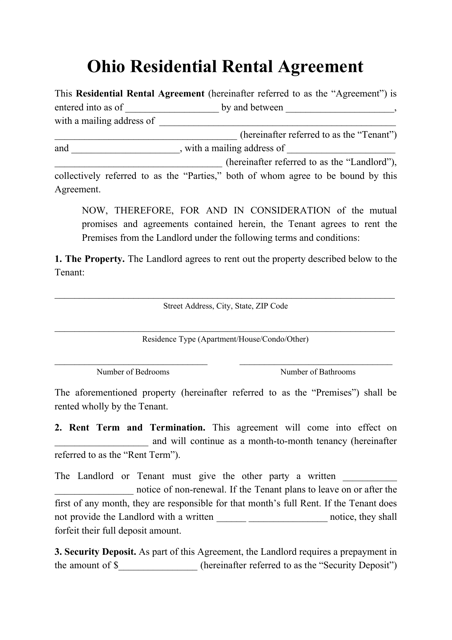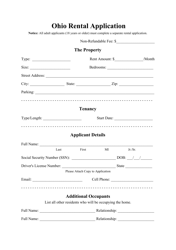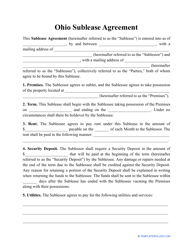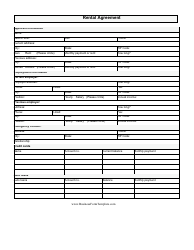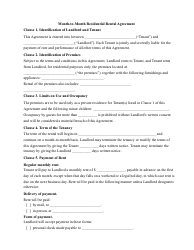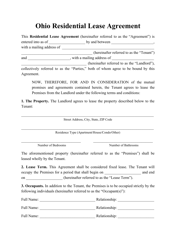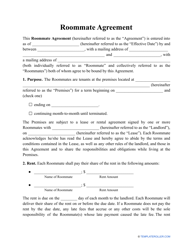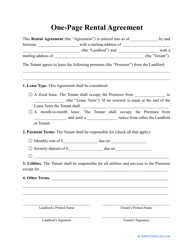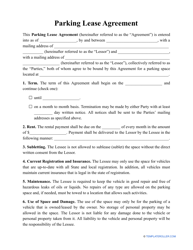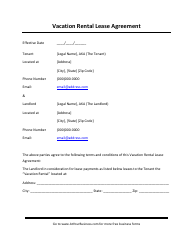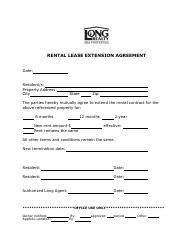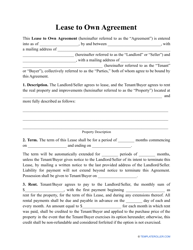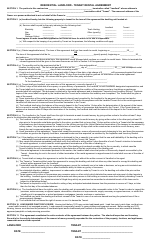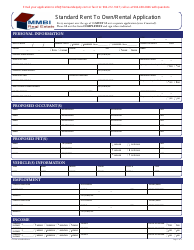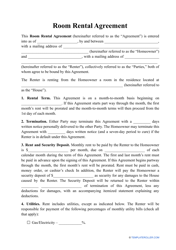Residential Rental Agreement Template - Ohio
The Residential Rental Agreement Template - Ohio is a standardized form used by landlords and tenants in Ohio to outline the terms and conditions of a residential rental agreement. It helps establish the rights and responsibilities of both parties and ensures clarity and legal compliance in the rental process.
The Residential Rental Agreement Template - Ohio can be filed by the landlord and the tenant.
FAQ
Q: What is a residential rental agreement?
A: A residential rental agreement is a legal contract between a landlord and a tenant, outlining the terms and conditions of the rental property.
Q: What does a residential rental agreement include?
A: A residential rental agreement typically includes details such as the names of the landlord and tenant, the rental property address, the rent amount and due date, the duration of the lease, and any additional terms and conditions.
Q: Is a residential rental agreement required in Ohio?
A: A residential rental agreement is not required by law in Ohio, but it is highly recommended to have a written agreement in place to protect the interests of both the landlord and the tenant.
Q: Can a landlord raise the rent during the lease term?
A: In Ohio, a landlord can raise the rent during the lease term if there is a provision in the rental agreement allowing for rent increases. However, the landlord must provide a written notice of the rent increase at least 30 days before it takes effect.
Q: What are the landlord's responsibilities in Ohio?
A: In Ohio, a landlord is responsible for maintaining the rental property in a habitable condition, making necessary repairs, and complying with applicable health and safety codes.
Q: What are the tenant's responsibilities in Ohio?
A: In Ohio, a tenant is responsible for paying rent on time, keeping the rental property clean and in good condition, and complying with the terms of the rental agreement.
Q: Can a landlord evict a tenant without a reason?
A: No, in Ohio, a landlord cannot evict a tenant without a valid reason, such as nonpayment of rent, violation of the rental agreement, or illegal activities on the premises.
Q: How much notice does a landlord have to give for eviction in Ohio?
A: In Ohio, a landlord must provide a written notice to the tenant, giving them a minimum of three days to pay rent or remedy a lease violation before proceeding with the eviction process.
Q: Can a landlord enter the rental property without permission?
A: In Ohio, a landlord must provide reasonable notice to the tenant before entering the rental property, except in cases of emergency or if the tenant has abandoned the premises.
Q: Can a tenant terminate the lease early in Ohio?
A: In Ohio, a tenant can terminate the lease early if there is a provision in the rental agreement allowing for early termination or if both the landlord and tenant mutually agree to terminate the lease.
